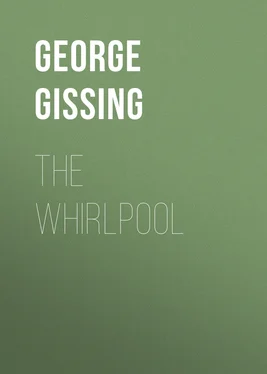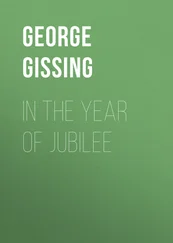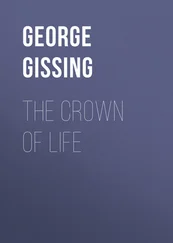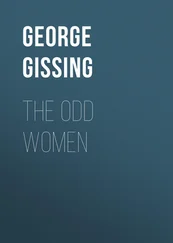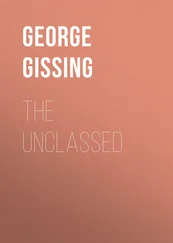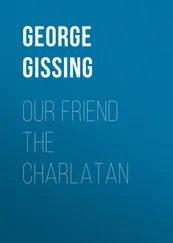George Gissing - The Whirlpool
Здесь есть возможность читать онлайн «George Gissing - The Whirlpool» — ознакомительный отрывок электронной книги совершенно бесплатно, а после прочтения отрывка купить полную версию. В некоторых случаях можно слушать аудио, скачать через торрент в формате fb2 и присутствует краткое содержание. Жанр: foreign_prose, literature_19, foreign_antique, на английском языке. Описание произведения, (предисловие) а так же отзывы посетителей доступны на портале библиотеки ЛибКат.
- Название:The Whirlpool
- Автор:
- Жанр:
- Год:неизвестен
- ISBN:нет данных
- Рейтинг книги:4 / 5. Голосов: 1
-
Избранное:Добавить в избранное
- Отзывы:
-
Ваша оценка:
- 80
- 1
- 2
- 3
- 4
- 5
The Whirlpool: краткое содержание, описание и аннотация
Предлагаем к чтению аннотацию, описание, краткое содержание или предисловие (зависит от того, что написал сам автор книги «The Whirlpool»). Если вы не нашли необходимую информацию о книге — напишите в комментариях, мы постараемся отыскать её.
The Whirlpool — читать онлайн ознакомительный отрывок
Ниже представлен текст книги, разбитый по страницам. Система сохранения места последней прочитанной страницы, позволяет с удобством читать онлайн бесплатно книгу «The Whirlpool», без необходимости каждый раз заново искать на чём Вы остановились. Поставьте закладку, и сможете в любой момент перейти на страницу, на которой закончили чтение.
Интервал:
Закладка:
'It isn't every woman could have done it, you know, Mr. Rolfe.'
'It is not,' Harvey assented.
Only those rooms were furnished which the little family used, five or six in all; two or three stood vacant, and served as playgrounds for the children in bad weather. Of his relatives at the top, Buncombe never spoke; he either did not know, or viewed with indifference, the fact that Mrs. Handover served his lodger in a menial capacity. About once a month he invited three or four male friends to a set dinner, and hilarity could be heard until long after midnight. Altogether it was a strange household, and, as he walked about the streets of the neighbourhood, Harvey often wondered what abnormalities even more striking might be concealed behind the meaningless uniformity of these heavily respectable housefronts. As a lodger he was content to dwell here; but sometimes by a freak of imagination he pictured himself a married man, imprisoned with wife and children amid these leagues of dreary, inhospitable brickwork, and a great horror fell upon him.
No. In his time he had run through follies innumerable, but from the supreme folly of hampering himself by marriage, a merciful fate had guarded him. It was probably the most remarkable fact of his life; it heightened his self-esteem, and appeared to warrant him in the assurance that a destiny so protective would round the close of his days with tranquillity and content.
Upon this thought he lay down to rest. For half an hour Basil Morton's letter had occupied his mind: he had tried to think out the problem it set forth, not to leave his friend quite unanswered; but weariness prevailed, and with it the old mood of self-congratulation.
Next morning the weather was fine; that is to say, one could read without artificial light, and no rain fell, and far above the house-tops appeared a bluish glimmer, shot now and then with pale yellowness. Harvey decided to carry out his intention of calling upon Mrs. Abbott. She lived at Kilburn, and thither he drove shortly before twelve o'clock. He was admitted to a very cosy room, where, amid books and pictures, and by a large fire, the lady of the house sat reading. Whatever the cause, it seemed to him that his welcome fell short of cordiality, and he hastened to excuse himself for intruding at so early an hour.
'I received a letter last night which I thought you had better know of without delay.'
'From that man—Mr. Wager?' said Mrs. Abbott quickly and hopefully, her face brightening.
'Yes. But there's nothing satisfactory in it. He writes from Liverpool, and merely says that the children are at his lodgings, and he can do no more for them.'
Mrs. Abbott set her lips in an expression almost of sullenness. Rolfe had never seen her look thus, but it confirmed a suspicion which he had harboured concerning her. Why, he hardly knew—for she always presented a face of amiability, and talked in gentle, womanly tones—doubt as to Abbott's domestic felicity haunted his mind. Perhaps he now saw her, for the first time, as she commonly appeared to her husband—slightly peevish, unwilling to be disturbed, impatient when things did not run smoothly.
'You saw my husband yesterday?' was her next remark, not very graciously uttered.
'We met in the street last night—before I got Wager's letter. He was suffering horribly from neuralgia.'
Harvey could not forbear to add this detail, but he softened his voice and smiled.
'I don't wonder at it,' returned the lady; 'he takes no care of himself.'
Harvey glanced about the room. Its furnishing might be called luxurious, and the same standard of comfort prevailed through the house. Considering that Edgar Abbott, as Rolfe knew, married on small means, and that he had toiled unremittingly to support a home in which he could seldom enjoy an hour's leisure, there seemed no difficulty in explaining this neglect of his own health. It struck the visitor that Mrs. Abbott might have taken such considerations into account, and have spoken of the good fellow more sympathetically. In truth, Harvey did not quite like Mrs. Abbott. Her age was about seven and twenty. She came of poor folk, and had been a high-school teacher; very clever and successful, it was said, and Harvey could believe it. Her features were regular, and did not lack sweetness; yet, unless an observer were mistaken, the last year or two had emphasised a certain air of conscious superiority, perchance originating in the schoolroom. She had had one child; it struggled through a few months of sickly life, and died of convulsions during its mother's absence at a garden-party. To all appearances, her grief at the loss betokened tenderest feeling. When, in half a year's time, she again came forth into the world, a change was noted; her character seemed to have developed a new energy, she exhibited wider interests, and stepped from the background to become a leader in the little circle of her acquaintances.
'Have you read this?' asked his hostess abruptly, holding up to him a French volume, Ribot's L'Heredite Psychologique .
'No. That kind of thing doesn't interest me much.'
'Indeed! I find it intensely interesting.'
Harvey rose; he was in no mood for this kind of small-talk. But no sooner had he quitted his chair, than Mrs. Abbott threw her book aside, and spoke in another tone, seriously, though still with a perceptible accent of annoyance.
'Of course that man's children are here, and I suppose it is our duty to provide for them till some other arrangement is made. But I think we ought to put the matter in the hands of the police. Don't you, Mr Rolfe?'
'I'm afraid there's small chance of making their father support them. He is certainly out of England by now, and won't easily be caught.'
'The worst of it is, they are anything but nice children. What could one expect with such a father? Since their poor mother died, they have been in the hands of horrible people—low-class landladies, no doubt; their talk shocks me. The last amusement they had, was to be taken by somebody to Tussaud's, and now they can talk of nothing but "the hunted murderer"—one sees it on the walls, you know; and they play at being murderer and policeman, one trying to escape the other. Pretty play for children of five and seven, isn't it?'
Rolfe made a gesture of disgust.
'I know the poor things can't help it,' pursued Mrs. Abbott, with softer feeling, 'but it turns me against them. From seeing so little of their father, they have even come to talk with a vulgar pronunciation, like children out of the streets almost. It's dreadful! When I think of my cousin—such a sweet, good girl, and these her children—oh, it's horrible!'
'They are very young,' said Harvey, in a low voice, perturbed in spite of himself. 'With good training–'
'Yes, of course we must put them in good hands somewhere.'
Plainly it had never occurred to Mrs. Abbott that such a task as this might, even temporarily, be undertaken by herself; her one desire was to get rid of the luckless brats, that their vulgarity might not pain her, and the care of them encumber her polite leisure.
After again excusing himself for this call, and hearing his apology this time more graciously received, Harvey withdrew from the cosy study, and left Mrs. Abbott to her Heredite Psychologique . On his way to lunch in town, he thought of the overworn journalist groaning with neuralgia, and wondered how Mrs. Abbott would relish a removal to the town of Waterbury.
CHAPTER 4
Uncertain to the last moment, Harvey did at length hurry into his dress clothes, and start for Fitzjohn Avenue. He had little mind for the semi-fashionable crowd and the amateur music, but he could not answer Mrs. Bennet Frothingham with any valid excuse, and, after all, she meant kindly towards him. Why he enjoyed so much of this lady's favour it was not easy to understand; intellectual sympathy there could be none between them, and as for personal liking, on his side it did not go beyond that naturally excited by a good-natured, feather-brained, rather pretty woman, whose sprightliness never passed the limits of decorum, and who seemed to have better qualities than found scope in her butterfly existence. Perhaps he amused her, being so unlike the kind of man she was accustomed to see. His acquaintance with the family dated from their social palingenesis, when, after obscure prosperity in a southern suburb, they fluttered to the northern heights, and were observed of the paragraphists. Long before that, Bennet Frothingham had been known in the money-market; it was the 'Britannia'—Loan, Assurance, Investment, and Banking Company, Limited—that made him nationally prominent, and gave an opportunity to his wife (in second marriage) and his daughter (by the first). Three years ago, when Carnaby (already lured by the charms of Sibyl Larkfield) presented his friend Rolfe as 'the man who had been to Bagdad', Alma Frothingham, not quite twenty-one, was studying at the Royal Academy of Music, and, according to her friends, promised to excel alike on the piano and the violin, having at the same time a 'really remarkable' contralto voice. Of late the young lady had abandoned singing, rarely used the pianoforte, and seemed satisfied to achieve distinction as a violinist. She had founded an Amateur Quartet Society, whose performances were frequently to be heard at the house in Fitzjohn Avenue.
Читать дальшеИнтервал:
Закладка:
Похожие книги на «The Whirlpool»
Представляем Вашему вниманию похожие книги на «The Whirlpool» списком для выбора. Мы отобрали схожую по названию и смыслу литературу в надежде предоставить читателям больше вариантов отыскать новые, интересные, ещё непрочитанные произведения.
Обсуждение, отзывы о книге «The Whirlpool» и просто собственные мнения читателей. Оставьте ваши комментарии, напишите, что Вы думаете о произведении, его смысле или главных героях. Укажите что конкретно понравилось, а что нет, и почему Вы так считаете.
